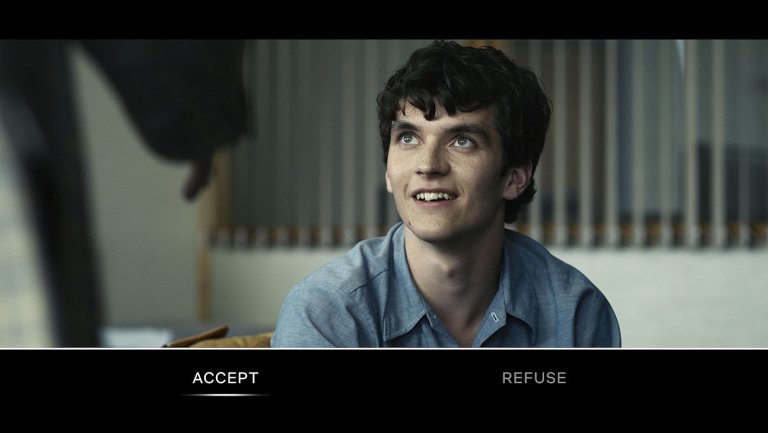By Catherine Taylor
Charlie Brooker’s Black Mirror returned to Netflix on 28 December with Bandersnatch, an interactive ‘choose your own adventure’ episode with multiple endings. The landmark sequence doubles as both a feature film and a video game, giving viewers the opportunity to make decisions which ultimately influence the outcome. Set in 1984, no doubt an ode to George Orwell’s novel of the same name, Bandersnatch follows video game creator Stefan Butler as he attempts to adapt a fictional novel, the titular Bandersnatch, into an interactive video game. Stefan is an only child who blames the untimely death of his mother on his bewildered father, who witnesses Stefan’s eventual mental collapse at the hands of the game that consumes him.
Since its debut in 2011, Black Mirror has pushed boundaries, raising thought-provoking questions about societal issues surrounding morality, social media, modern politics and vigilante justice. Each episode is independent of the last, with new characters and settings attributed to each individual chapter. However, one overarching theme prevails across all Black Mirror episodes: modern technology is developing at such a rate as to be considered potentially detrimental to society.
What, if anything, does Bandersnatch have to say about these issues? As a film, Bandersnatch is well written and skillfully plotted, with stellar performances from Fionn Whitehead as Stefan and Will Poulter as master programmer Colin Ritman. Strip back the interactive elements and Stefan’s story remains impactful, even though all five potential endings to the film are at worst frightening, and at best bittersweet.
The genius of Bandersnatch, therefore, lies in its intrinsic message concerning the concept of ‘free will’. Stefan has created a game that tricks the player into believing they have the power to influence the ending when, ultimately, all potential endings have been decided for them. Stefan’s game, therefore, mirrors the game we as viewers are playing in real time. If there are five potential endings to our viewing of Bandersnatch, which is the truest ending? Most viewers find that the first, second or even third conclusions they come to are unsatisfactory.
To its credit, Bandersnatch allows players to go back to a decision-making point in the story and choose an alternate pathway, in the hopes of finding a happier conclusion for Stefan. This is the secret of Bandersnatch’s success: in combining addictive storytelling with the potential to view alternate endings, Black Mirror has created a real game as addictive as Stefan’s fictional one.
Bandersnatch could therefore be viewed as Netflix’s secret weapon in the growing competition between streaming services. Netflix is now competing for customers with the likes of Amazon Prime and Hulu. Having the first interactive film of its kind on its service may give the company an edge over other streaming sites.
Interactive films also target the problem of illegal streaming or piracy, as Bandersnatch is proving notoriously difficult, if not impossible, to stream without a Netflix subscription. Therefore Bandersnatch, with its ‘choose your own adventure’ format, may be the forerunner of interactive television in an age of streaming innovation.
Image via Netflix
